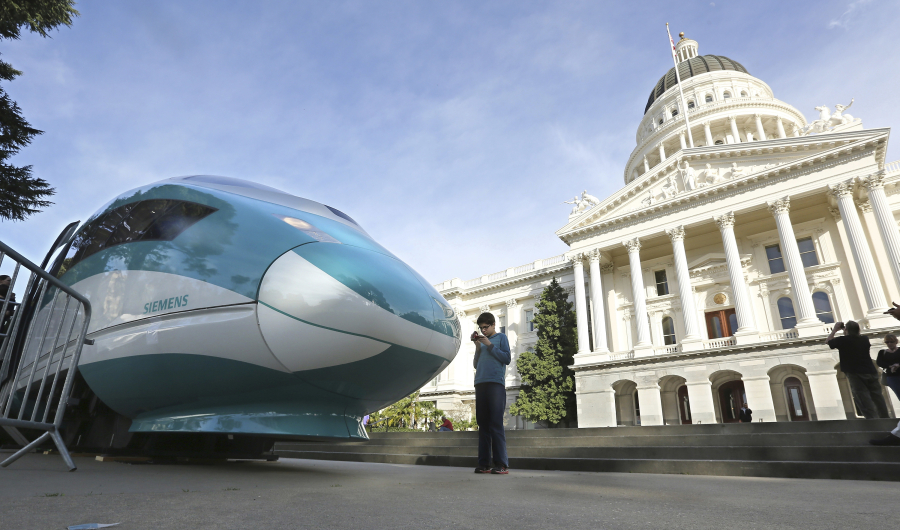SAN FRANCISCO — A California Supreme Court decision Thursday could help speed up construction of a $64 billion bullet train between Los Angeles and San Francisco by allowing the project to sidestep a strict environmental law.
The court will decide whether state-owned and -funded rail lines are subject to the California Environmental Quality Act or whether federal law trumps it. The ruling will come in a lawsuit that challenged plans to introduce freight trains on a Northern California rail line.
Supporters and critics of the state’s proposed high-speed rail system say the decision could apply to the bullet train.
The ambitious project has faced numerous lawsuits alleging violations of the state environmental law. Those lawsuits could disappear if the California justices rule that federal law supersedes state law for rail projects.
The California High-Speed Rail Authority also could be freed from a host of regulatory and procedural requirements that might slow construction of the line. The project would still be subject to the National Environmental Policy Act, but critics say that’s not a substitute for the state’s stricter environmental protections.
The rail authority’s push to avoid those rules may seem ironic for a signature project of Gov. Jerry Brown, who has positioned himself as a leader on environmental issues. But the agency said to be successful, it must be subject to the same regulations as other railroads to further its “ability to achieve the transportation, environmental, and economic benefits the high-speed rail system has to offer.”
The rail authority urged the court to find that federal law trumps the state’s environmental law, saying the case had “potentially important ramifications for the high-speed rail project.”
Central Valley farmers concerned about the bullet train’s effect on agricultural land asked the court to reach the opposite conclusion or limit its decision to the lawsuit over the Northern California rail line.
“If the court finds the federal pre-emption of CEQA applies broadly to railroads in California such that the authority will no longer be required to satisfy CEQA’s requirements, the authority will be able to evade the environmental and political accountability that California’s Legislature (and the voters) intended,” the Madera and Merced county farm bureaus said in their legal filing referring to the California Environmental Quality Act.
The state Supreme Court ruling could clear up uncertainty following a determination several years ago by a federal agency that it has authority to pre-empt state environmental law.
In a decision made public in 2014, the U.S. Surface Transportation Board said lawsuits challenging the high-speed rail line over environmental issues conflict with its authority over railroads.
A California appeals court earlier ruled in favor of several municipalities south of San Francisco that challenged the high-speed rail project using the state law.
The California Court of Appeal sided with Atherton, Menlo Park, Palo Alto and a collection of community groups in ruling that federal law does not trump the California environmental law.



